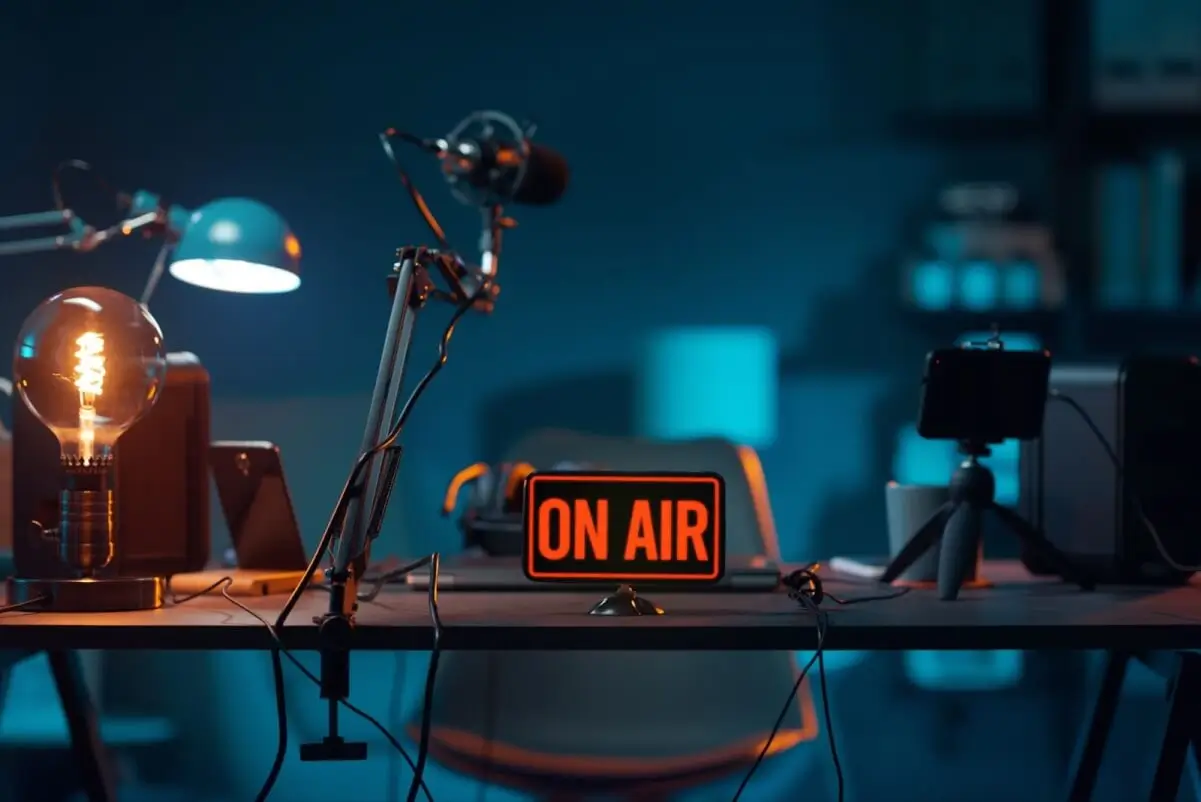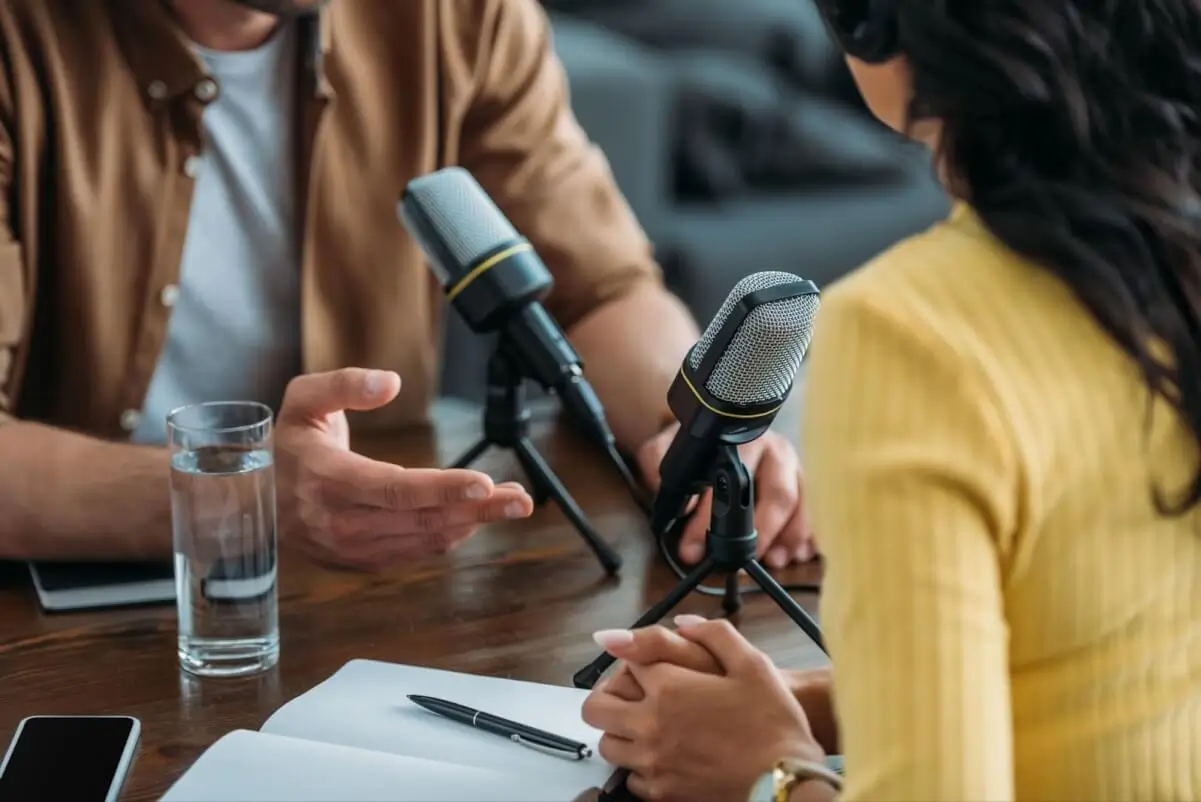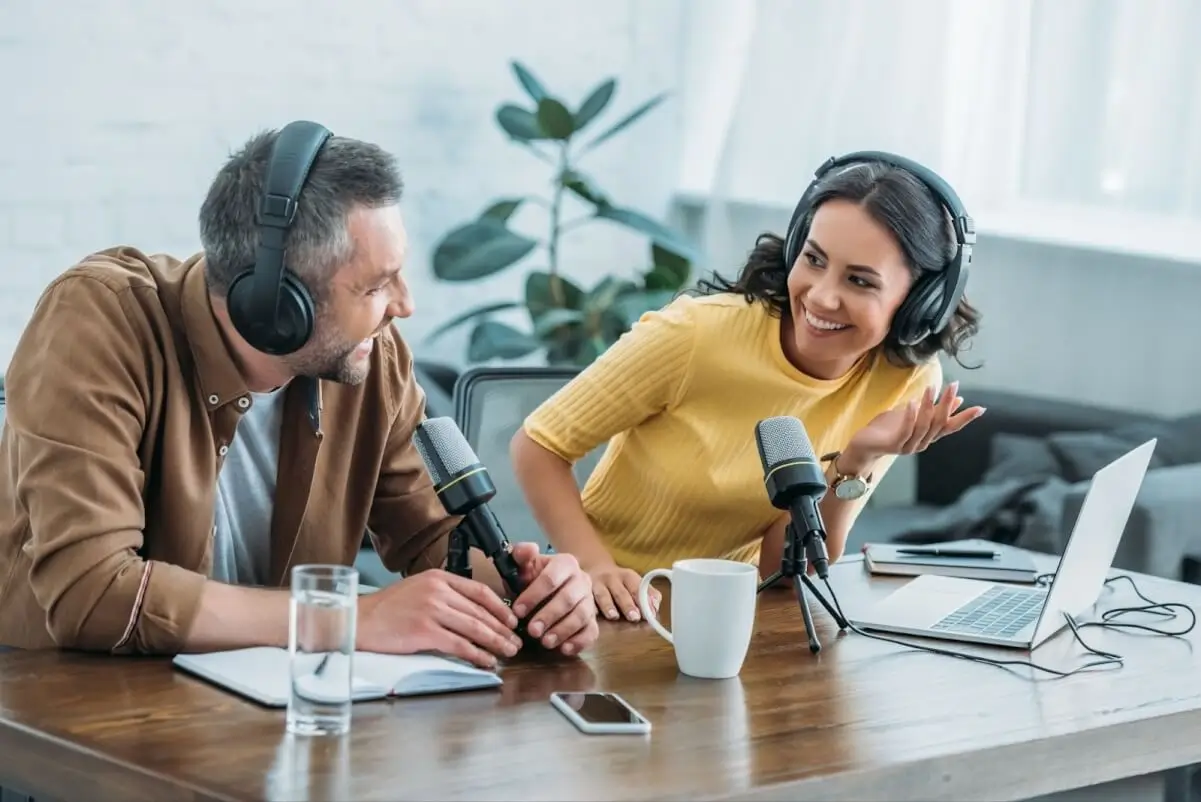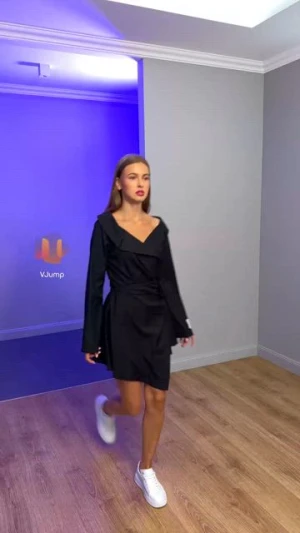What is a Podcast & How They Work?

- Podcast meaning and term appearance
- What is podcasting?
- Difference between podcasts and interviews
- What is unique about podcasts?
- Type of podcasts
- What is a podcast used for
- How does a podcast work?
- How do podcast yourself?
Podcast trends have been growing for the last decade. According to the Statista Report for 2023, over 80% of the Western countries' population 12 years and older know the term. But some people still think that podcasts are the same as interviews branded in a new flashy term. If you are in this 22%, today we are going to discuss what is podcasting and how does it work . We will also highlight the difference between podcast and interview, tell you about the term appearance, specifics, and what makes it unique, and tips .
Podcast meaning and term appearance
In 2004 a newspaper writer for the Guardian Ben Hammersley watched Steve Jobs's stage performance talking about the iPod and broadcasting. He combined these two words and coined PodCast as a term. Later on, in 2005 Jobs himself introduced the podcast concept and made it available for listeners.
What is podcasting?
A podcast is essentially a series or collection of digital audio that are made available for listening or downloading via the internet. It could be a website or listening app that you have.
Podcasts are like radio talk shows on demand. The way that most people listen to podcasts is by using apps on their smartphones that allow them to download these shows on demand. There are other ways you can listen to podcasts like YouTube or using a PC to access podcast players from a browser. The vast majority of podcasts are independently produced by people recording from their kitchens, offices, and even cars. However, this form of content delivery is also used by official shows.

Difference between podcasts and interviews
An interview is a specific content format that involves one person (the interviewer) asking questions and another person (the interviewee) responding to those questions. They could be placed in various settings such as TV programs, shows, radio, and in podcasts as well.
The primary purpose of an interview is to gather information, insights, or perspectives from the interviewee on a specific subject. Interviews are often used within podcasts as a way to feature guest speakers or experts and provide valuable content to the podcast's audience.
On the other hand, a podcast is a broader audio or video program that can include various content formats, including interviews. Being less specified compared to interviews, podcasts can cover a whole range of topics and people at the same time. Interviews can be featured within podcasts, but podcasts can also include other types of content beyond interviews.

What is unique about podcasts?
Podcast uniqueness is to provide on-demand access to audio content, allowing listeners to choose when and where they consume it. This flexibility is especially appealing in today's fast-paced world, where people have busy schedules and varying preferences for when they want to engage with media.
Type of podcasts
Podcasts are now not what they were 5 or 10 years ago, nowadays, they have more options to present to listeners. They cover an incredibly broad range of topics and genres, from news and education to storytelling, entertainment, niche interests, and more. This diversity means there's something for virtually everyone, catering to a wide array of tastes and preferences.

What is a podcast used for
Podcasts are accessible to anyone with an internet connection and a device capable of playing audio, such as a smartphone, tablet, or computer. This accessibility makes them a democratic and inclusive medium, allowing content creators from all backgrounds to reach global audiences. Podcasts allow amateurs to have the opportunity to create high-quality content without needing the backing of a major network or studio. This openness encourages creative experimentation and diverse voices. Hence, podcasts offer various monetization opportunities including advertising, sponsorships, donations, and subscriptions, which is good from both a monetization and competition standpoint. You may have specific goals to achieve with your podcastings such as:
Generating leads for business
Networking
Audience education
Community development
In this case, we recommend investing in professional podcast equipment and spending more time learning about your audience. Develop your podcast ideas and different ways to maintain steady audience growth.
How does a podcast work?
The work is based on an RSS feed. RSS stands for “Really Simple Syndication” or sometimes “Rich Site Summary.” It's a technology that allows users to subscribe to and receive updates from websites or online content sources. Serial application was originally developed to feature podcasts and is a reason why it started to become popular.

How do podcast yourself?
As we mentioned earlier, you do not have to purchase a studio for that, you can use any device to record yourself and place it on the platform or the app that has the most coverage. Find viral subjects to discuss and script it into engagement format adding transitions and effects between the scenic to entertain your audience and get to top charts.

Author
Founder of VJump. In addition to business, he is passionate about travel photography and videography. His photos can be viewed on Instagram (over 1 million followers), and his films can be found on his YouTube channel.
Moreover, his profile is featured on the most popular and authoritative resource in the film industry — IMDb. He has received 51 international awards and 18 nominations at film festivals worldwide.









































































